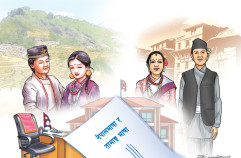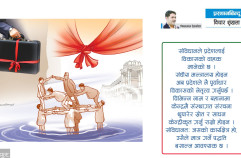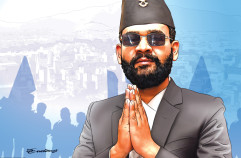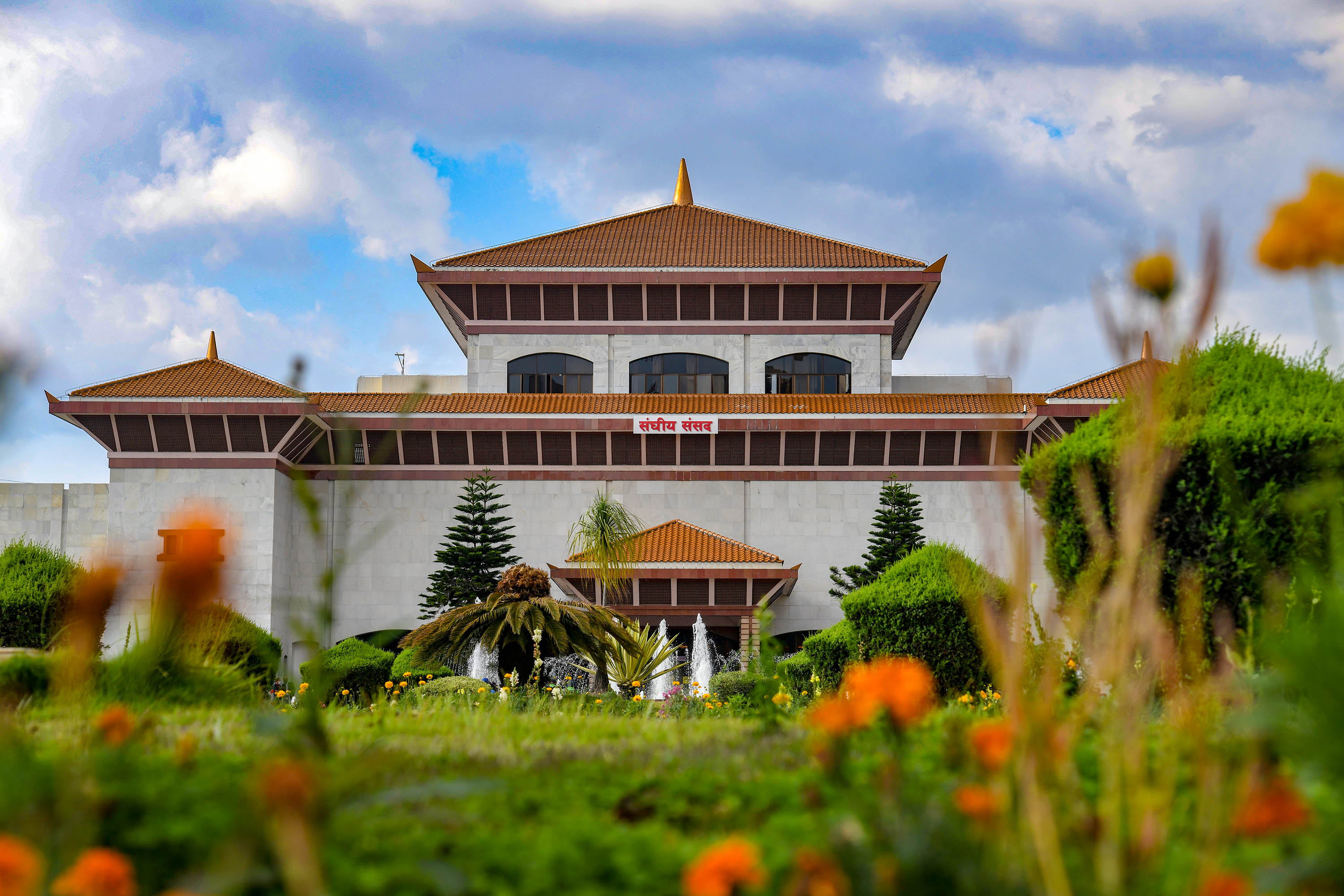Democratization and the Left's Dilemma
We use Google Cloud Translation Services. Google requires we provide the following disclaimer relating to use of this service:
This service may contain translations powered by Google. Google disclaims all warranties related to the translations, expressed or implied, including any warranties of accuracy, reliability, and any implied warranties of merchantability, fitness for a particular purpose, and noninfringement.

While the dictatorship of limited class, caste and gender is running around the world in the name of capitalist democracy, Karl Marx and Friedrich Engels publicized the concept of the freedom of all human emancipation, through the Communist Manifesto. Scholars like Hobbes, Mill, Keats, Rousseau did not cleverly or dishonestly discuss any class dictatorship while explaining capitalist democracy.



However, Marx-Engels honestly advocated the dictatorship of the proletariat, saying that the dictatorship of a class would be necessary before reaching complete human liberation. This vocabulary has not only become a weapon of the opponents who discredited it as a communist dictatorship, but even the socialists themselves have been mechanically following the same style.
Marx-Engels did not do much organizational work during their lifetimes beyond the creation and dismantling of the Communist Party, an international network. In 1917, for the first time, the Russian Revolution established women and men as officials with equal rights, from equal voting rights to a share of power. From that time, women's rights not only took the form of a global movement, America, which is called the mother of western democracy today, was awakened by the same Bolshevik shock. On August 18, 1920, women were given the right to vote through the Nineteenth Amendment to the US Constitution. In 1965, the first parliamentary election in Nepal was held when African-Americans, i.e. blacks, got the right to vote.
The fact that America became independent in the year 1776 in the name of democracy and imposed the rule of one class and gender for 180 years by making black castes, tribals and women inhuman and second-class subjects is recorded in history. Britain, which is considered to be another mother of parliamentary democracy, gave women the right to vote only in 1928. This context is significant because political parties have ruled America and Britain since the time of Independence and the Glorious Revolution. As part of the governance system, the parties there practiced the internal party system. That is, the country that claimed to be the father and mother of democracy until the 1930s practiced undemocratic, discriminatory and allegedly inferior democratic practices that refused to recognize women as human beings. It was the Russian Communist Revolution that forced capitalist parties all over the world to accept women as citizens, albeit only in appearance. "Democracy is a demanding system (demanding system), not a mechanical and one-sided state of elections (such as majority rule) (Sen Amartya, 2021).
While America was struggling to accept women as men, women were elected prime ministers in Sri Lanka (Sirimao Bandaranaike, 1960), India (Indira Gandhi, 1966) and Israel (Golda Mayer, 1969), which were freed from colonial rule. This female leader has made a special place in world politics. The source of inspiration for all this was Rosa Luxemburg, the world-famous German socialist leader who debated war policy and socialism with Lenin. She was martyred in the prison of the so-called democratic power of Germany in the second year of the Russian Revolution. "The democratic process is best able to solve collective problems, to address the inherent cognitive diversity of large groups of citizens. Because democracy brings more people into the decision-making process, it can take advantage of multiple sources of information and perspectives to evaluate proposed laws and policies' (Stanford Encyclopedia of Philosophy, 2006). This is the reason why in today's world no one can stand against the tendency to follow the ritualistic path from election to election. Encyclopaedia Britannica says that since the time of Plato, Aristotle and Socrates, the most literature in the world has been written about democracy. Unfortunately, democratic practices and conduct are becoming increasingly weak. "When people look back on what happened in the twentieth century, they will find it difficult to prioritize the emergence of democracy as the dominant acceptable system of governance" (Sen Armatya, 2021). Indeed, the idea of democracy took shape in ancient Greece. But its downfall was a more authoritarian and unlimited form of government, which replaced democratic norms. It is difficult to find a difference in the situation around the world as explained by Amartya Sen.
A long time has passed since the time of BC until the rise of modern democracy. Many developments have been connected to it that finally emerged as the working system of the victorious regime. From the signing of the Magna Carta in 1215, through the French and American Revolutions in the eighteenth century, to the Bolshevik Revolution, equal suffrage spread across Europe. "The idea of democracy as a universal commitment is quite new and a product of the twentieth century" (Sen Amartya, 2021).
What is clear from this brief context is that socialists, especially communists, played a leading role throughout the world for inclusive, gender-neutral and anti-racist democracy. Ironically, since the 1960s, the Communists have been universally discredited as a one-party dictatorship and an undemocratic group. It is a historical fact that Lenin's principle and method of party formation of democratic centralism was the first principle of operation of any political party in the world. But this democratic centralism is being discredited as the arbitrariness of one person, that too from the time of Stalin, who is considered to be Lenin's successor, from Russia. This is of course partially true. The collapse of the Soviet Union in the 1990s put communists all over the world on the defensive. Although countries such as China, Vietnam and Cuba are boldly practicing socialist governance, they do not have the same global outlook on multi-party competition and internal democratic practices. It can be considered that the western polluted air of the nineties disturbed the left wing of Nepal the most.
In terms of how democratic or undemocratic the party of Nepal is, the tumultuous time of the Maoist people's war, which was discredited as a one-party dictatorship, has an interesting reference of inclusive, proportional, gender equality and anti-caste constitutional arrangements as recent historical politics. Why did the Maoists or other left-wing parties themselves fear becoming democratic even though they envisioned the highest system of democracy and put it into practice? Even though they are said to be democratic, why did they become Stalinist and authoritarian in practice? This is the incomprehensible dilemma of the Nepali leftists.
There has been a theoretical dilemma and contradiction between the Sarvartha party on whether the democratic practice within the party and the external competitive system are the same or different. The tradition that the presidential system practiced in the old party Congress of Nepal is considered democratic is still maintained. Madan Bhandari in the then UML among the left-wing parties, along with the multi-party populist program, put forward the theoretical concept of competition in the internal life of the party. Due to his untimely death, he could not give a clear explanation organizationally. Based on the immediate interest of ruling with eternal authority by playing within the factions within the party, the UML adopted the method of conducting elections in an open manner by registering candidates from the hall from the seventh congress. By the time the Eighth Convention (2065) was reached, the representatives chosen from the convention hall of the multi-term and all office bearers were said to have practiced high democratization by adopting the direct election system, and permanent factionalism and conflicting factions were sown within the party from the bottom to the top. The democratic practice within the UML is creating an opposition faction within the same party. The party life is ending.
Just as the Maoists were confused about what to do with the parliamentary powers they had gained since entering the peace process, they became increasingly conventional and unconscious about their own organizational life. The result is plain to the world. The unity with the UML had increased the psychological anxiety of the Maoists who had to go from a nominated organizational instinct to an electoral path. At that time, after the party that was said to be unified again separated, the internal democratization debate started. The association of the Maoists with the UML was itself a tumultuous cataclysm. Regarding the management of the same, after the failure of last year's convention, some new decisions have been taken institutionally about the leadership selection system only recently by holding a legislative conference. In the Legislative Conference of the Maoists, two trends have been revealed, that they should learn exactly from the UML and that they prefer to do organizational practice in a slightly different way. Those who sought to adopt the UML style had no plans to build a well-thought-out organizational foundation. Only a glimpse of the then power hunger was displayed and that display is sure to continue.
The UML style organizational leadership selection method is becoming a failed and fatal system. It is dividing the party, at least visibly, from the president to the cell committee members, creating a battleground for two opposing factions. The Oli faction and the two anti-Oli factions have been institutionalized from top to bottom. Within that group, there are sub-groups at every level. In the past, the spectacle of Jhalnath-Madhav faction and Oli-Vamdev faction was peculiar in itself. As a result of that, the huge party that was integrated was not only divided, but due to the explosion of hostile competition between the Oli faction and the Madhav faction, Madhav became another party in Nepal. Within that, now the party called Samajwadi united as Madhav group and Jhalnath group is standing in the last struggle of existence.
A tendency of the Maoists to follow the method that failed in the UML and destroyed the internal life of the party is creating an anti-Prachanda faction from top to bottom. His last ditch effort to legitimize it continues. But the method of directly electing all the members of every level committee (except reserved and nominated) and the same committee electing office bearers can be less harmful. This method does not encourage the member to split in one fell swoop from top to bottom. When it comes to the number of the Maoist Central Committee, at least no one out of 199 will form a panel of more than 100 and make a front to be elected to the committee. Aspirants for the membership of the Central Committee go to the competition individually. That's not to say that there can't be some level of group lobbying. But with the method of electing officials including the president from the hall, it is easy to divide the convention from the top to the bottom, from the top to the bottom, from the beginning to the selection of representatives. An office-bearer election or selection system after the election of committee members is less encouraging for party members to split openly.
It would be wrong to understand that the democratization of the party is only a competition between a handful of representatives within the party. Election as a representative of the people in a multi-party contest is a matter of public concern. Only the method of selecting candidates through primaries will help to democratize the party socially, so that all members of the party can participate in the selection of candidates at every level. The method to be determined by the central president of the party from ward head, village/city head to federal parliament candidate is completely feudal style. This style is nothing more than the king-maharajas giving badahkim and sending. But the debate on this matter has not yet entered the Left Party of Nepal. Recently, at least within the Congress, the debate about primaries is increasing, it can be considered as a commendable and a journey towards democratization.
If UML and Maoist leaders want to practice a democratic system in the true sense, they should be ready to select the candidacy of people's representatives at all levels through primaries. It will automatically compel parties including Congress to do the same. The introduction of the practice of making at least the ordinary members of those parties sovereign in the selection of multi-party competitive candidates can become an important round of starting a new chapter in the system of internal organizational leadership selection. Now, the democratization debate within the Maoists seems to be nothing more than the impulse of why Prachanda did not declare me as his successor. Multiparty competition and intra-party competition must be distinguished as long as there is an ethical pretense of class interest. If communism as claimed by Maoists or UMLs is the current situation, then the party itself will be dissolved. If the desire to keep the party alive is maintained, it will adopt a clean and unbridled way like the Congress. Otherwise, the left-wing party needs to develop a different internal leadership selection system and a method of parliamentary competition that guarantees more party members and public participation.
As the situation of the leftists in Nepal is different from that of other countries of the world, it is self-evident that the party organizational system should be made different. Again, even if the journey towards UML-Maoist unity is to be facilitated, there is no alternative to develop a more democratic and mature method regarding internal competition and the method of selecting people's representatives.
प्रकाशित : चैत्र १४, २०८० ०९:४०

 १९.१२°C काठमाडौं
१९.१२°C काठमाडौं














